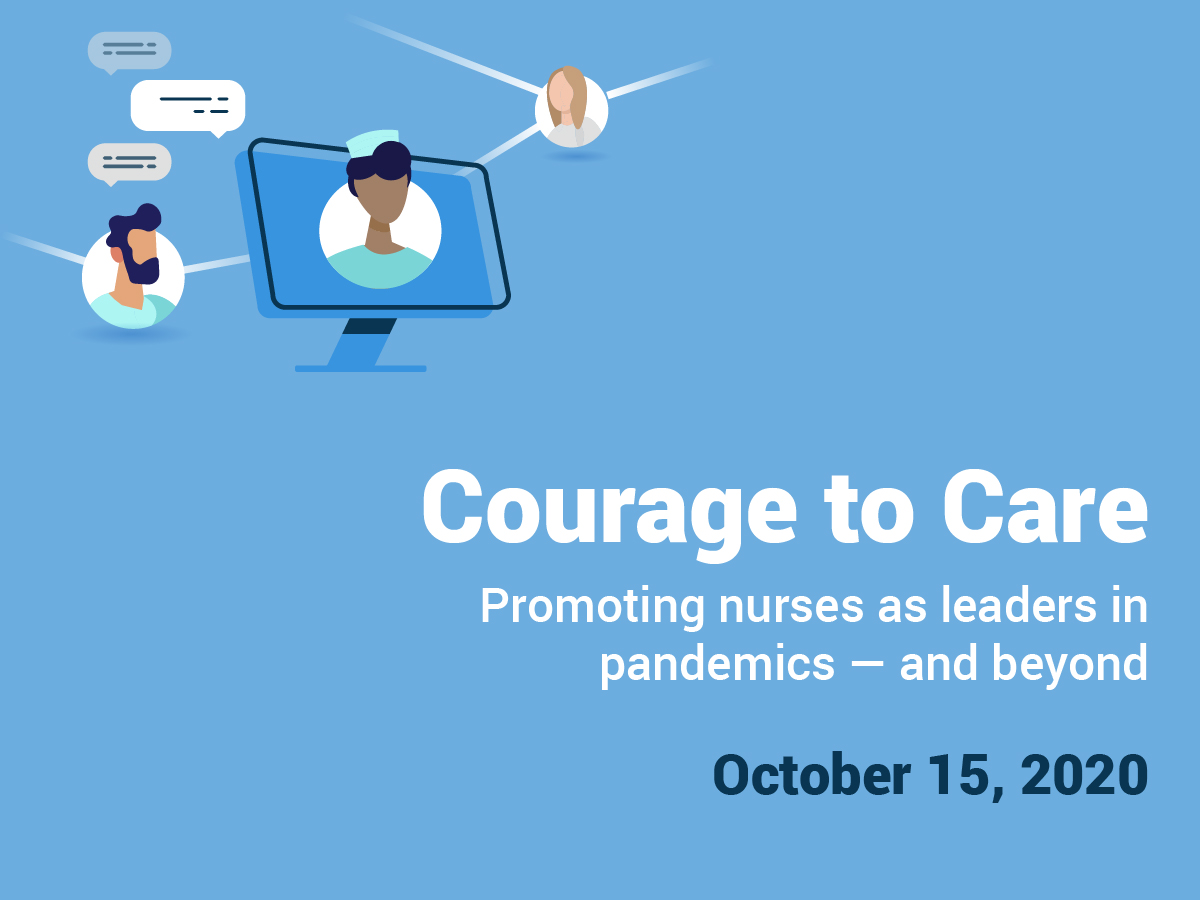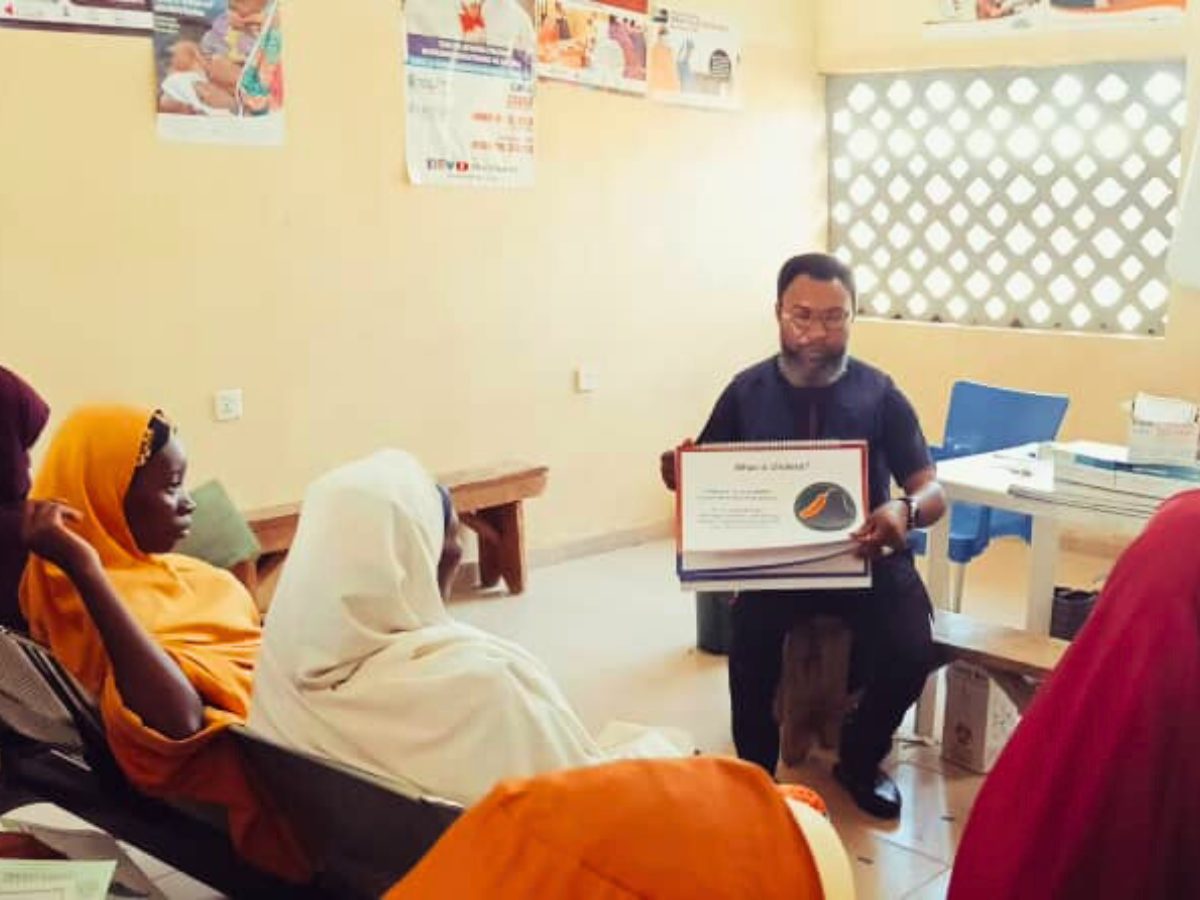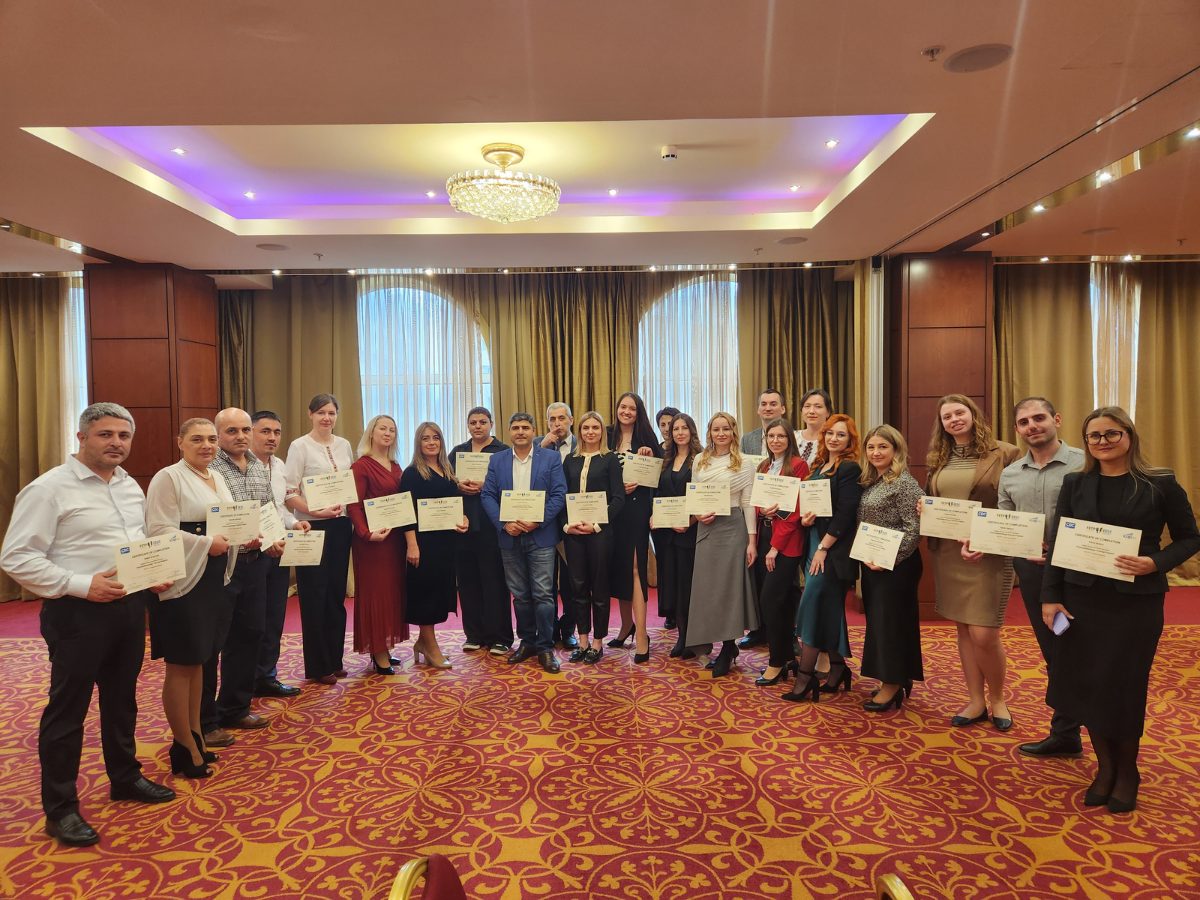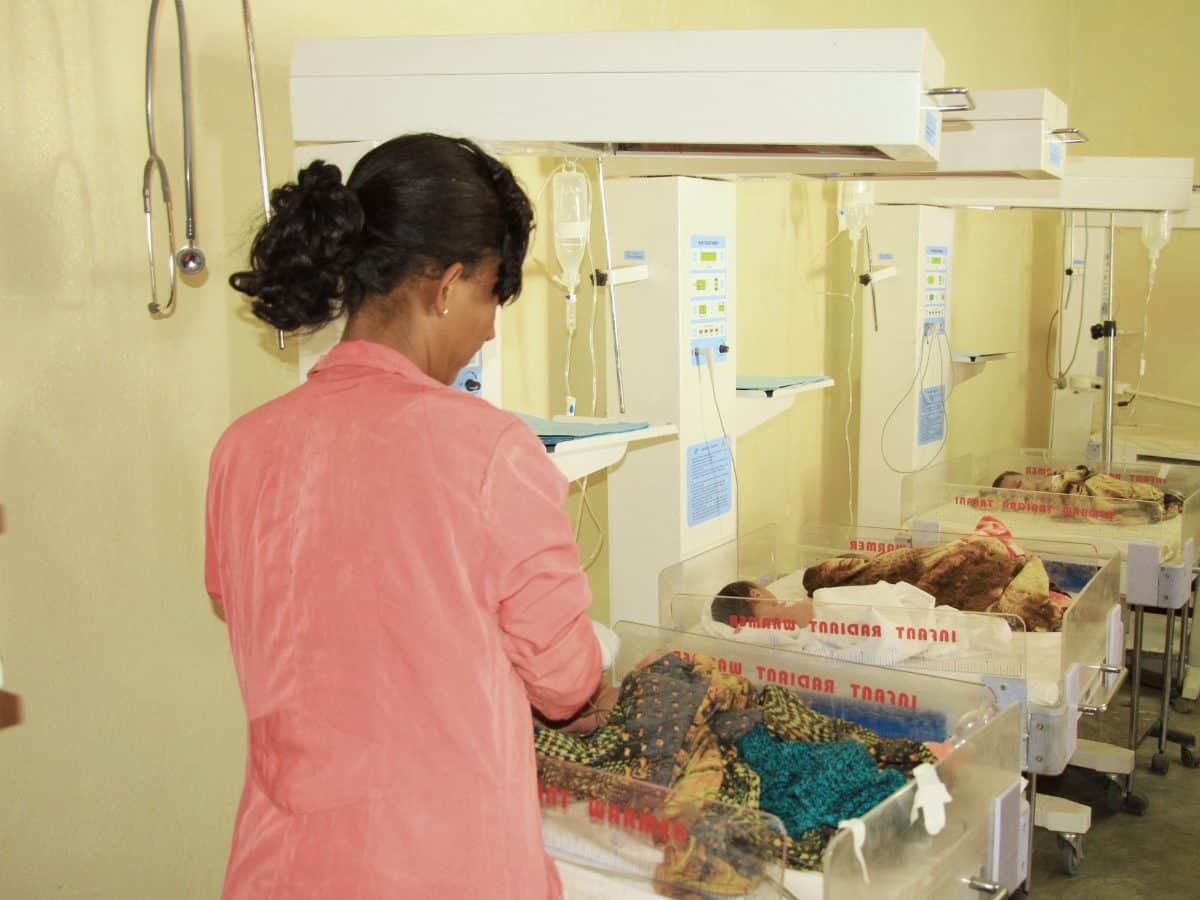As part of its ongoing commemoration of International Year of the Nurse, ICAP convened a half-day virtual conference exploring the roles of nurses as leaders in health and how their unique contributions can enhance health care systems around the world. Conference sessions featured practical discussions on how nurses and other health workers can, and do, lead the charge for strengthened health systems and healthier communities.
During a keynote session, supermodel and registered nurse Maggie Rawlins spoke with Susan Michaels-Strasser—senior director for human resources for health development at ICAP and a registered nurse herself—highlighting the role of nurses in emergency health responses. Rawlins cited the nursing profession’s longstanding reputation for “stepping up” during previous health crises and commended nurses for their multidimensional skills and abilities brought to the health response of emergencies throughout history, and during the current pandemic.
“During a crisis, nurses are always the first ones to step up whether they are giving direct patient care in the hospital or organizing large scale health organizations, they play such a vital role,” said Rawlins. “Throughout history, they have always run to the front lines.”
Fatu Kekula—who, as a young nursing student during the 2014 Ebola outbreak in West Africa, developed a low-cost method of protecting caregivers from Ebola infection using trash bags—also advocated for expanded training of nurses and nursing students in large-scale health emergency response. “Nurses do [already] care for patients,” she said, “but they need to be better trained on how to handle pandemics when they come.”
Two additional sessions featured practical skill sharing on how nurses and other health workers on the frontlines can take better care for themselves and to train and empower others as community health advocates. In these two sessions, there was a major focus on scaling-up solutions—for the care of self and others—to expand access to critical services so that health care providers and the communities they serve can receive the support and education they need to stay well during this current pandemic, and beyond.
Recognizing the importance of health workers, ICAP also announced the winners of its inaugural Health Advocacy Hero Award, given to an outstanding advocate for health care workers during the COVID-19 pandemic, and its Courage to Care Award, presented to a health worker on the frontlines of the global COVID response who has shown exemplary commitment-to-care and resiliency in face of the ongoing pandemic. The Health Advocacy Hero Award was received by the Swab Squad, a group of medical staff at Jefferson University Hospital in Philadelphia. The Swab Squad became an internet sensation after posting several dance videos at the Jefferson Health facilities. The Courage to Care award was jointly awarded to two entries on the frontlines of the global COVID response: John Katala, Tanzania, and the Rwanda Biomedical Center (RBC), the Ministry of Health entity responsible for coordinating the COVID-19 response in Rwanda. John Katala is a dedicated community outreach volunteer who has worked tirelessly throughout the COVID-19 pandemic to bring antiretroviral therapy prescription refills from clinics directly to patients’ homes. This critical service allows people living with HIV to continue taking the lifesaving medication as health facilities work to reduce in-person visits in the fight against COVID-19.
Under the leadership of Director General, Sabin Nsanzimana, MD, the RBC has stepped into national prominence as a leader in the country’s rigorous public health response. Since the emergence of the novel coronavirus, Dr. Nsanzimana and his team at RBC have tirelessly worked to safeguard the health of the Rwandan people and to protect the public health system at large. He and his team have spent many a sleepless night hard at work visiting COVID-19 treatment centers; providing supervision to health centers, testing labs, and isolation centers; and providing critical health information to the general public through numerous public briefings across the country. The RBC has served as a reminder for the world of the power of dedicated public servants.
“As we celebrate the nurses and midwives in our individual lives, in our communities and in our world, it is a time to focus on what matters,” said Michaels-Strasser. “By building more resilient and more highly trained frontline health workers, health systems will be strengthened not only in the course of normal operations, but more importantly, during times of crisis.”
The solutions discussed during the Courage to Care event aim to guarantee that nurses are central to national and local health policies, programs, and leadership. ICAP has supported the professional development of nurses and midwives in sub-Saharan Africa since 2006 and continues to advocate for nurses as leaders through its year-long This Nurse Can campaign.
As the world commemorates the Year of the Nurse and the Midwife, ICAP honors the dedication of the nurses in its own programs and in the everyday lives of patients around the world — emphasizing the leadership roles they should play in delivering health care and shaping health policy.








